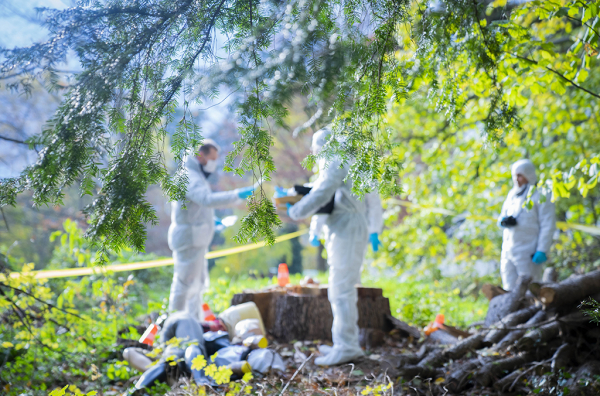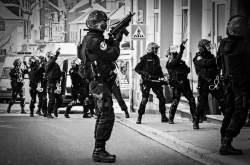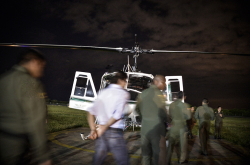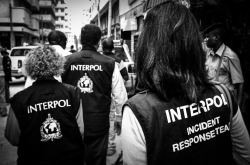LYON, France – War crimes investigators have taken part in an INTERPOL training course to enhance their skills in real-life investigative scenarios.
The simulation exercise was part of a week-long (18 – 22 November) course on genocide, war crimes and crimes against humanity investigations at INTERPOL’s General Secretariat headquarters in France.

The 7th Training Course on Genocide, War Crimes and Crimes against Humanity Investigations provided 17 law enforcement officers from 14 countries with the fundamental skills they need to investigate these serious international crimes.
International experts in the investigation of war crimes from the International Criminal Court as well as from Switzerland and Netherlands shared their expertise with the participants, briefing them on the skills needed to investigate genocide, war crimes and crimes against humanity, including sexual and gender-based violence in armed conflict.
These include forensics, interview skills, witness protection measures and the recognition of armed groups and military equipment.

The course prepared officers for potential collaboration with peacekeeping forces deployed in different countries, as well as with investigations undertaken by national authorities, international courts and tribunals tied to the discovery of mass graves in post-conflict areas.
The participants participated in the simulation exercise on the fourth day of the course to apply their knowledge to real-life scenarios.
Simulated war crime scenes including a detention centre, execution area and mass grave, set up with the assistance of the French Forensic Police, and participants were required to investigate them and collect evidence, using techniques learnt during the training.

The course was held under the framework of Project BASIC (Broadening Analysis on Serious International Crimes) in which INTERPOL works with national authorities and international partners to locate and arrest fugitives wanted for genocide, war crimes and crimes against humanity.







